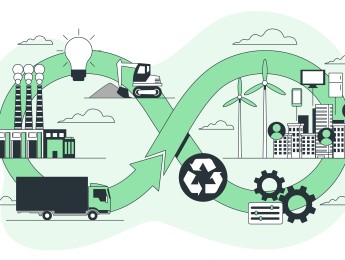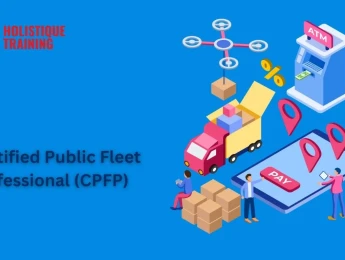Researchers, organisations, and governments globally have addressed climate change. The agricultural industry has been identified as one of the largest contributors to harmful emissions that further progress climate change. However, as agriculture is crucial in all areas of society and cannot be fully stopped, there must be a transition to sustainable practices.
It is important to assess the risks associated with climate change, and not only the contribution farming makes towards it, but the negative impacts the industry will suffer. To transition into sustainable agriculture, there should be a thorough understanding of the current practices and how these can be improved. Soil management, irrigation and crop management are all features that can be easily adapted to be more sustainable. They are intertwined, and focusing on the health of the soil will lead to a better harvest with fewer resources used.
Alongside focusing on specific farms, there is also a strong need for community when incorporating climate-smart methods. Opening a conversation about change and communicating with other farms or agricultural organisations will help the involved individuals explore more options. Collaborating with others can also help multiple farms and organisations encourage and help others increase sustainability.
Upon completion of this course, participants will be able to:
- Understand the importance of sustainable agriculture during the challenge of climate change.
- Assess the link between climate change and agriculture and how to reduce the negative influences on both parties.
- Explain the core concepts, principles, and functions of sustainable agriculture.
- Explore and measure the processes contributing to climate change and strategise methods to reduce negative impact.
- Evaluate new technologies and standards and implement these into daily functions.
- Increase sustainability through soil and water management.
- Collaborate with other agricultural organisations so make joint changes together to reduce negative impact.
This course is designed for anyone within the agricultural industry who wishes to incorporate climate-smart methods and increase sustainability during their farming practices. It would be most beneficial for:
- Farmers
- Climate Change Analysts
- Climate Change Adaptation Managers
- Regional Agronomists
- Farm Managers
- Rural Surveyors
- Agricultural Engineers
This course uses a variety of adult learning styles to aid full understanding and comprehension. Participants will investigate various case studies of established farms to highlight climate-smart approaches and identify where else they may improve sustainability.
To guarantee the participants will develop a full understanding of the taught content, they will partake in a variety of learning methods, including presentations, group discussions, demonstrations, and group activities. This combination of methods ensures they can fully comprehend the taught content and practise any relevant practical skills.
Day 5 of each course is reserved for a Q&A session, which may occur off-site. For 10-day courses, this also applies to day 10
Section 1: Introduction to Climate Change
- Defining what climate change is and why It is a concern within the agricultural industry.
- Understanding climate change's negative impact on the agricultural industry and its future potential impact.
- Investigate specific agricultural systems and climate change’s impact on them.
- Describing how sustainable practices can improve agricultural systems and reduce the contribution to climate change.
Section 2: Adapting to Climate Change
- Analysing climate risks and vulnerabilities within agriculture.
- Incorporating climate risks into general risk management.
- Exploring minor and major adaptation methods to become more sustainable and reduce climate change impacts – crops, animals, tools and equipment.
- Investing in climate-resilient crops, managing crop rotation and diversification.
- Investing in animal sub-species better adapted to meet environmental changes, such as disease resistance, heat resistance, and other features.
Section 3: Sustainable Farming Practices
- Key concepts, principles, and standards of sustainable farming.
- Methods of preserving crops and soil – cover crop, intercropping, crop rotation and conservation tillage.
- Explain the benefits and limitations of crop preservation methods and how these can be incorporated with one another.
- Transitioning to organic farming and working in partnership with other local farms.
Section 4: Climate-Smart Agriculture
- Exploring what climate-smart agriculture is and its rising necessity.
- Understanding the 3 aims of climate-smart agriculture – productivity, resilience and reducing emissions.
- Aligning technologies and climate-smart approaches into different areas of the farm.
- Investigating climate-smart changes and actions globally and evaluating their success.
Section 5: Collaboration and Stakeholder Engagement
- The vitality of stakeholder engagement and farmer collaboration when it comes to tackling climate change.
- Establishing connections with different communities, including customers, other farmers, researchers, and policymakers.
- Establish climate-conscious goals and objectives and create action plans detailing these with the ideal steps and methods.
- Engaging in open communication with farmers and policymakers to change the farming standards and gain financial support in sustainable farming.
Upon successful completion of this training course, delegates will be awarded a Holistique Training Certificate of Completion. For those who attend and complete the online training course, a Holistique Training e-Certificate will be provided.
Holistique Training Certificates are accredited by the British Assessment Council (BAC) and The CPD Certification Service (CPD), and are certified under ISO 9001, ISO 21001, and ISO 29993 standards.
CPD credits for this course are granted by our Certificates and will be reflected on the Holistique Training Certificate of Completion. In accordance with the standards of The CPD Certification Service, one CPD credit is awarded per hour of course attendance. A maximum of 50 CPD credits can be claimed for any single course we currently offer.
- Course Code IND06-102
- Course Format Classroom, Online,
- Duration 5 days














